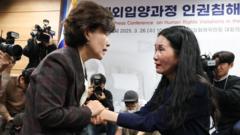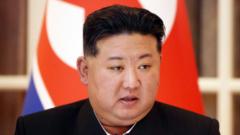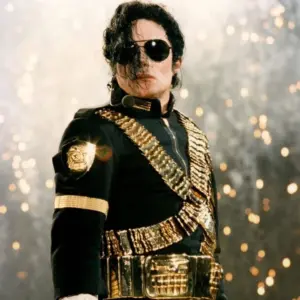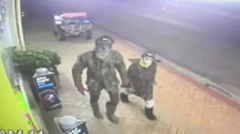An inquiry has unveiled South Korea's troubling history of child adoptions, showing that over 170,000 children were sent abroad, often facing fraudulent practices. The investigation highlights the lack of oversight by the government and the resultant trauma suffered by adoptees.
South Korea's Adoption Scandal: Landmark Inquiry Reveals Mass Human Rights Violations

South Korea's Adoption Scandal: Landmark Inquiry Reveals Mass Human Rights Violations
A recent report exposes systemic issues in South Korea's adoption practices, leading to the 'mass exportation' of children for profit.
A landmark inquiry has revealed that the South Korean government facilitated the "mass exportation" of at least 170,000 children for adoption, uncovering decades of human rights violations. The investigation, led by the independent Truth and Reconciliation Commission, highlighted the lack of oversight that allowed private adoption agencies to profit while engaging in fraudulent practices, including coercion and falsifying identities.
Since the 1950s, South Korea has been the largest exporter of children for adoption globally, primarily to Western nations. While the government has recently begun tightening its adoption regulations, many adoptees and their biological families continue to grapple with the traumatic past. "This is a shameful part of our history," stated Park Sun-young, chairperson of the commission, during an emotionally charged press conference. She emphasized that while some adoptees found loving families, others endured severe hardships due to flawed adoption processes.
The report, published on Wednesday after a detailed investigation initiated in 2022, documented how 367 adoptees, whose adoptions took place between 1964 and 1999, filed petitions alleging fraudulent practices. So far, 56 of these individuals have been recognized as victims of human rights violations, with the inquiry extending until May to further analyze additional cases.
The advent of South Korea's transnational adoption program followed the aftermath of the Korean War when the nation faced extreme poverty and a reluctance of local families to adopt children. The government therefore appointed private agencies to manage adoptions, granting them considerable autonomy without sufficient oversight. This led to a systemic breakdown, allowing agencies to conduct adoptions with minimal regulation, and, in some cases, without proper consent from birth mothers.
These agencies frequently created deceptive records that falsely portrayed children as abandoned, complicating the adoption process. This has created lasting issues for many adoptees, who now struggle to reconnect with their birth families due to erroneous identifications in their records.
The commission has recommended that the South Korean government issue a formal apology and adhere to international standards regarding transnational adoptions. In response to significant backlash and the revelations made in this report, South Korea passed a law in 2023 which mandates that all international adoptions be processed through a government ministry, transitioning away from private agencies by July of this year.
Despite these efforts, the South Korean government has not yet reacted to the findings of the inquiry. Inger-Tone Ueland Shin, one of the petitioners whose adoption was deemed illegal, shared her traumatic experiences, stating that her adoptive parents were more devoted to their dog than to her. She has pursued justice in Norway, successfully suing for damages and gaining recognition of the negligence associated with her adoption.
As conversations around adoption and human rights continue to evolve, advocates hope that such stories will prevent future abuses and ensure that children are treated with the respect and care they deserve.



















